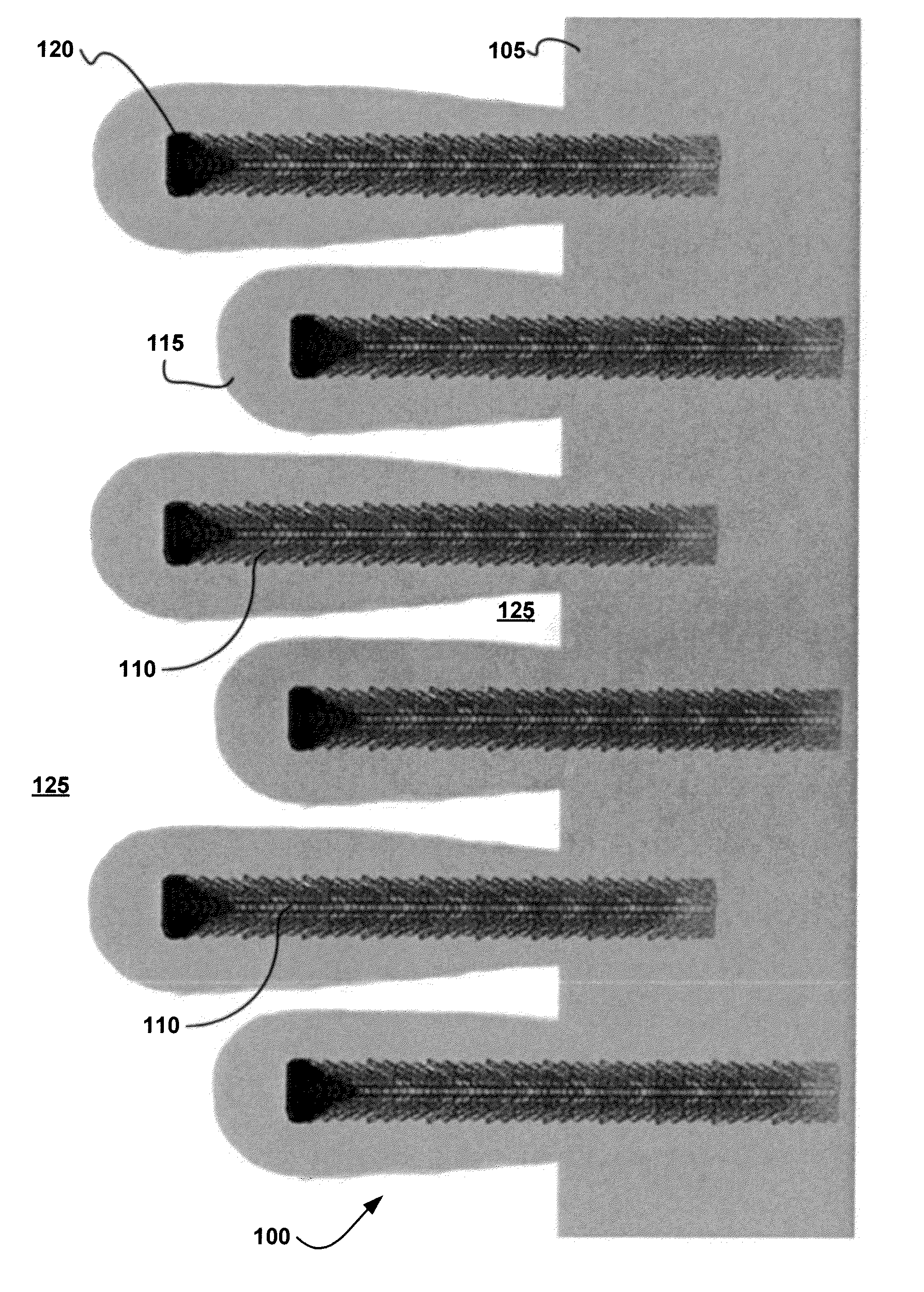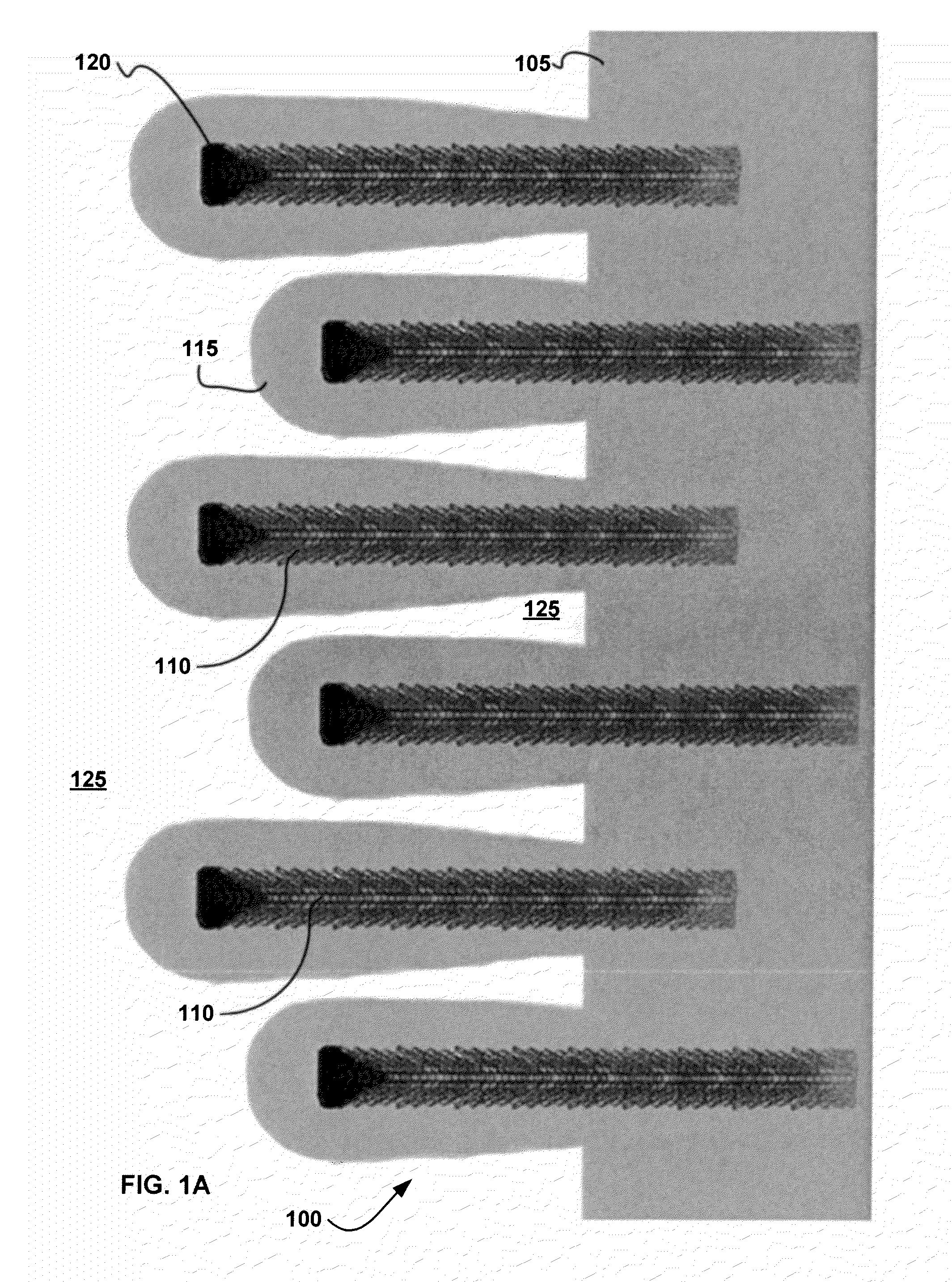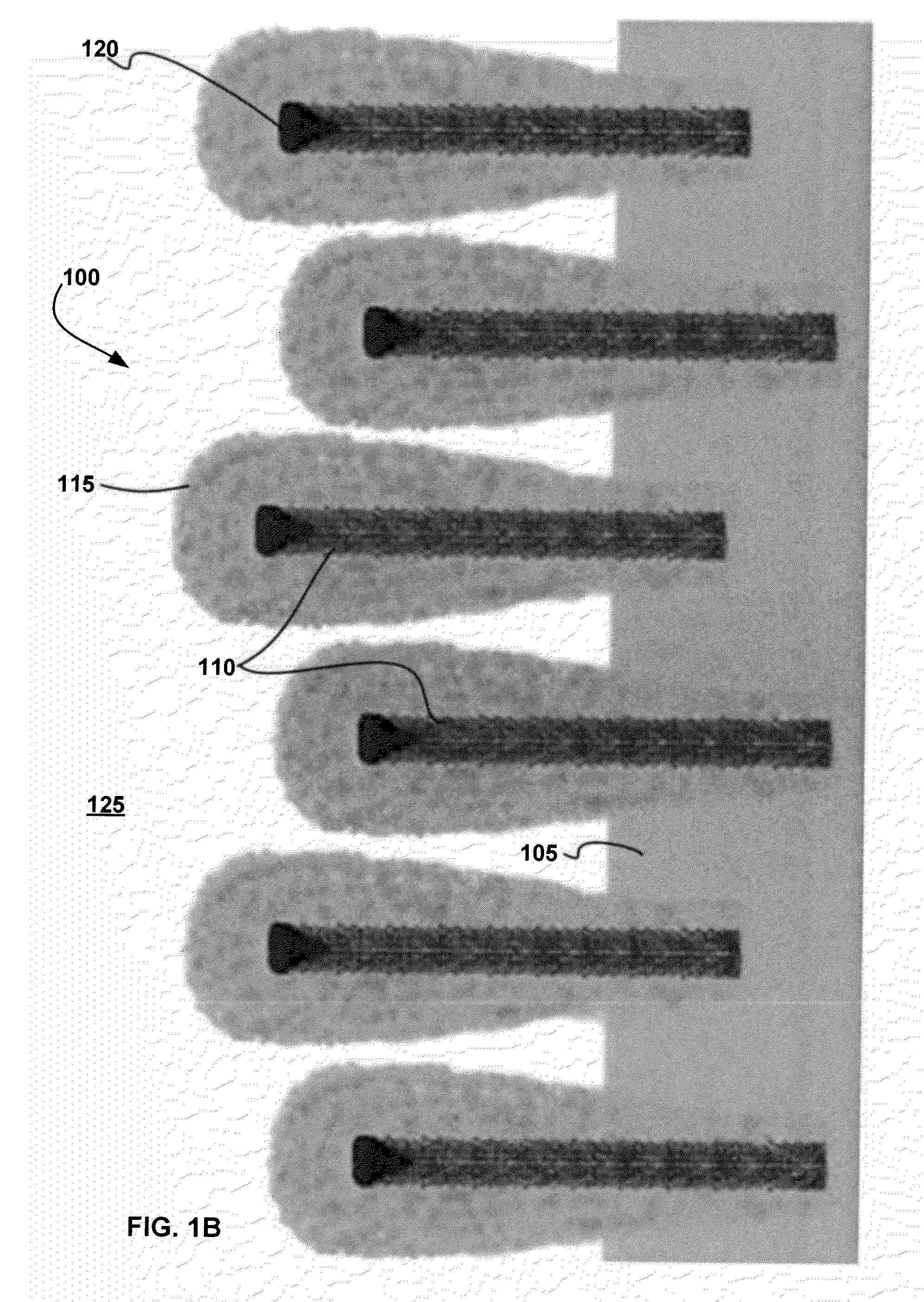Hybrid Energy Storage Devices
a technology of energy storage devices and hybrids, applied in the direction of electrochemical generators, cell components, transportation and packaging, etc., can solve the problem of significant limitation of the lifetime of si anodes
- Summary
- Abstract
- Description
- Claims
- Application Information
AI Technical Summary
Benefits of technology
Problems solved by technology
Method used
Image
Examples
Embodiment Construction
[0055]FIGS. 1A and 1B illustrate a CNF Array 100 comprising a plurality of CNF 110 grown on a conductive Substrate 105, according to various embodiments of the invention. In FIG. 1A the CNF Array 100 is shown in the Li extracted (discharged) state and in FIG. 1B the CNF Array 100 is shown in the Li inserted (charged) state. The CNF 110 in these and other embodiments discussed herein are optionally vertically aligned. The CNF 110 are grown on a Substrate 105 of Cu using a DC-biased plasma chemical vapor deposition (PECVD) process. As discussed above, the CNFs 110 grown by this method can have a unique morphology that includes a stack of conical graphitic structures similar to stacked cups or cones or a spiral. This creates a very fine structure that facilitates lithium intercalation. This structure is referred to here as the “stacked-cone”structure elsewhere herein. In larger length scale, these CNFs 110 are typically uniformly aligned normal to the substrate surface and are well sep...
PUM
| Property | Measurement | Unit |
|---|---|---|
| length | aaaaa | aaaaa |
| length | aaaaa | aaaaa |
| diameters | aaaaa | aaaaa |
Abstract
Description
Claims
Application Information
 Login to View More
Login to View More - R&D
- Intellectual Property
- Life Sciences
- Materials
- Tech Scout
- Unparalleled Data Quality
- Higher Quality Content
- 60% Fewer Hallucinations
Browse by: Latest US Patents, China's latest patents, Technical Efficacy Thesaurus, Application Domain, Technology Topic, Popular Technical Reports.
© 2025 PatSnap. All rights reserved.Legal|Privacy policy|Modern Slavery Act Transparency Statement|Sitemap|About US| Contact US: help@patsnap.com



